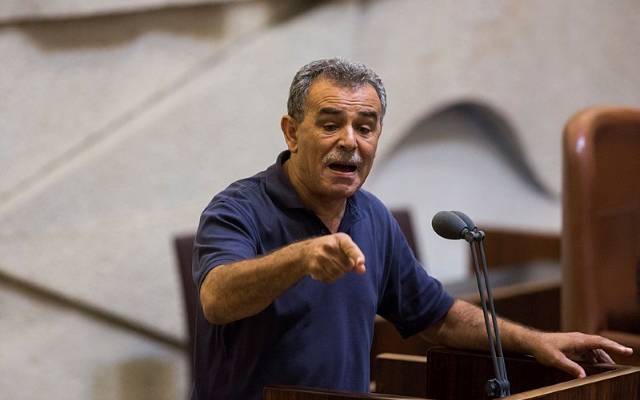A leading Arab-Israeli journalist is calling on Arab citizens of the Jewish state to reassess the need for representatives in the Knesset, which he accuses of violating democracy and oppressing the Palestinians.
Sparked by the passing this week of the Regulation Bill – a proposed law legalizing Jewish communities in Judea and Samaria that were established with state involvement and possibly built on private land or land not owned by the state – Arab-Israeli journalist Rami Mansour questioned the wisdom of participation in the Knesset by Arab citizens of the Jewish state.
Education Minister Naftali Bennett, head of the Bayit Yehudi party, has hailed the Regulation Bill as “leading the way to annexation” of Judea and Samaria, an integral part of the ancient Jewish homeland. The bill specifies that compensation is to be offered to land owners if they are known.
Expanding on an article he published Thursday, Mansour told The Jerusalem Post that the Knesset’s action “changes the rules of the political game.” By imposing its laws on an “occupied population,” the Knesset is violating democracy, he said.
“Parliaments generally deal with laws inside their country,” he said. “The United States doesn’t legislate laws that apply to India. But here Israel is legislating a law that applies to territory not under its sovereignty. It is legislating a law to expropriate from Palestinians not by means of military orders but by legislation in contravention of what was in the past. This is antidemocratic and turns the Knesset into the tool of the right.”
“Arabs have to ask themselves if they are willing to be part of this. Maybe there is no point to it,” he said.
“It may be that tomorrow the Knesset will decide to ban Muslim prayer and the majority will vote for it. It’s true that the majority passed it, but that doesn’t change that it’s immoral and undemocratic,” he charged, despite the fact that there is complete freedom of religion in Israel, an island of democracy in the Middle East.
“If the situation continues like this, it will be necessary to think twice before running for Knesset, because it is becoming a tool rather than a parliament that legislates in an objective and pertinent manner,” Mansour stated.
Arab MK Defends Knesset Participation
MK Jamal Zahalka (Joint List), among other Arab-Israeli parliamentarians, disagreed with Mansour, saying, “If we don’t participate in the Knesset, we will strengthen the right wing and weaken ourselves…and strengthen the extreme right in Israel. It’s not the right strategy. Our participation is based on serving our people’s interest and expressing our views and we do both.”
Among several other activities questioning the loyalty of several Arab-Israeli MKs, Zahalka, together with two other Arab-Israeli lawmakers, made a consolation visit to families of Palestinian terrorists and honored their memories with a moment of silence at the beginning of 2016. “I try to imagine what would happen in the British Parliament or the US Congress if MPs or members of Congress would stand at silent attention for murderers of British or American citizens. I think that there would be a very major outcry, and rightly so,” Israeli Prime Minister Benjamin Netanyahu stated at the time.
Judea and Samaria – Some Historical Background
The region was liberated by the IDF during the 1967 Six Day War, when the surrounding Arab nations attacked the Jewish state, vowing to destroy it. Judea, Samaria and the eastern part of Jerusalem, including the holy sites, were occupied by Jordan between 1948 and 1967.
Never in history was there a “state of Palestine.” The term “Palestinian” to define the Arabs in the region was created by the Former Soviet Union with the establishment of the terrorist Palestine Liberation Organization (PLO), whose goal was to eliminate the State of Israel.
The Palestinian Authority, which was subordinate to the PLO, has apparently not deviated from Arafat’s goals, continuing to incite terror against Israelis and to deny the historic Jewish roots to Jerusalem.
By: United with Israel Staff and The Jerusalem Post
